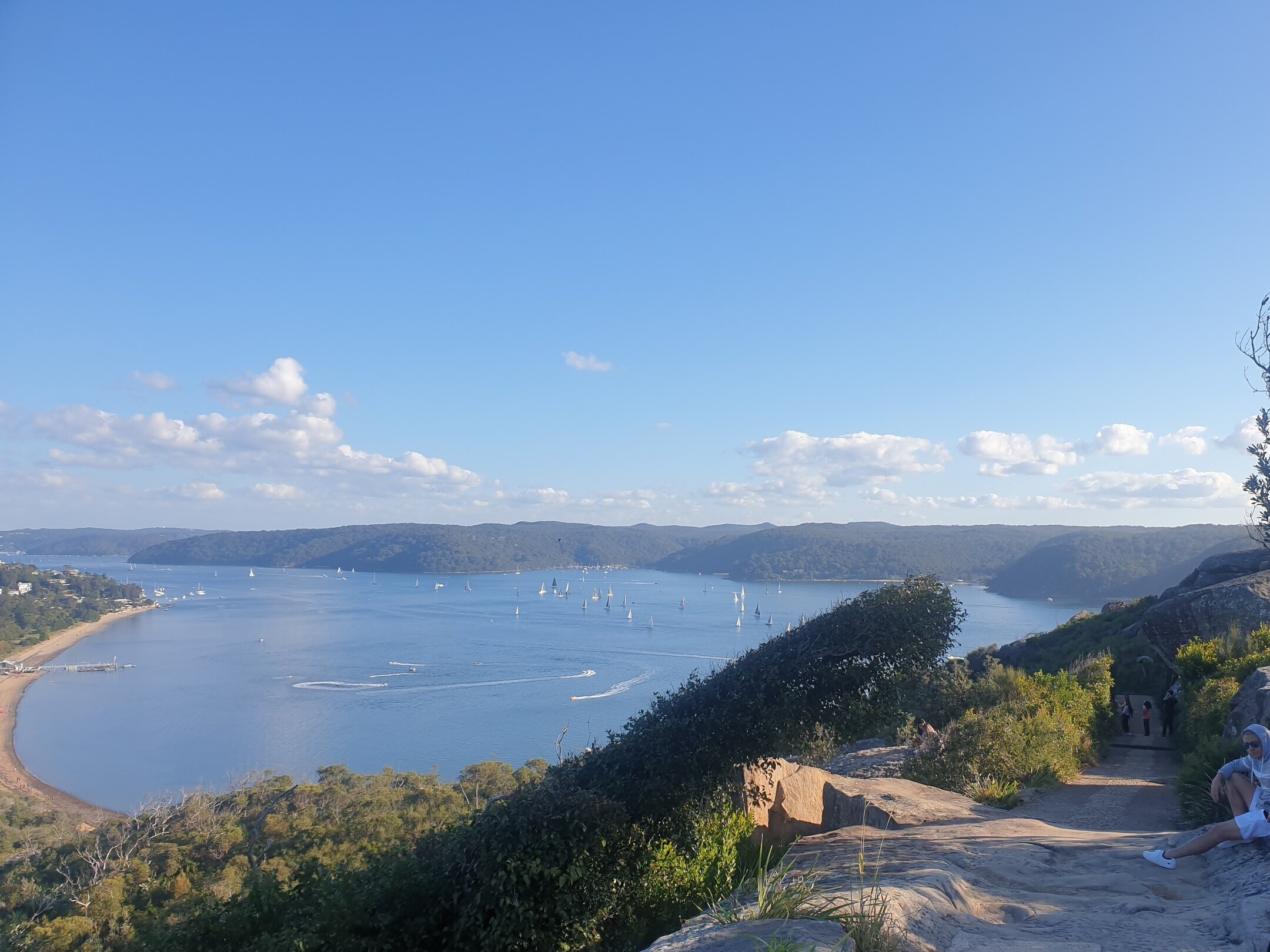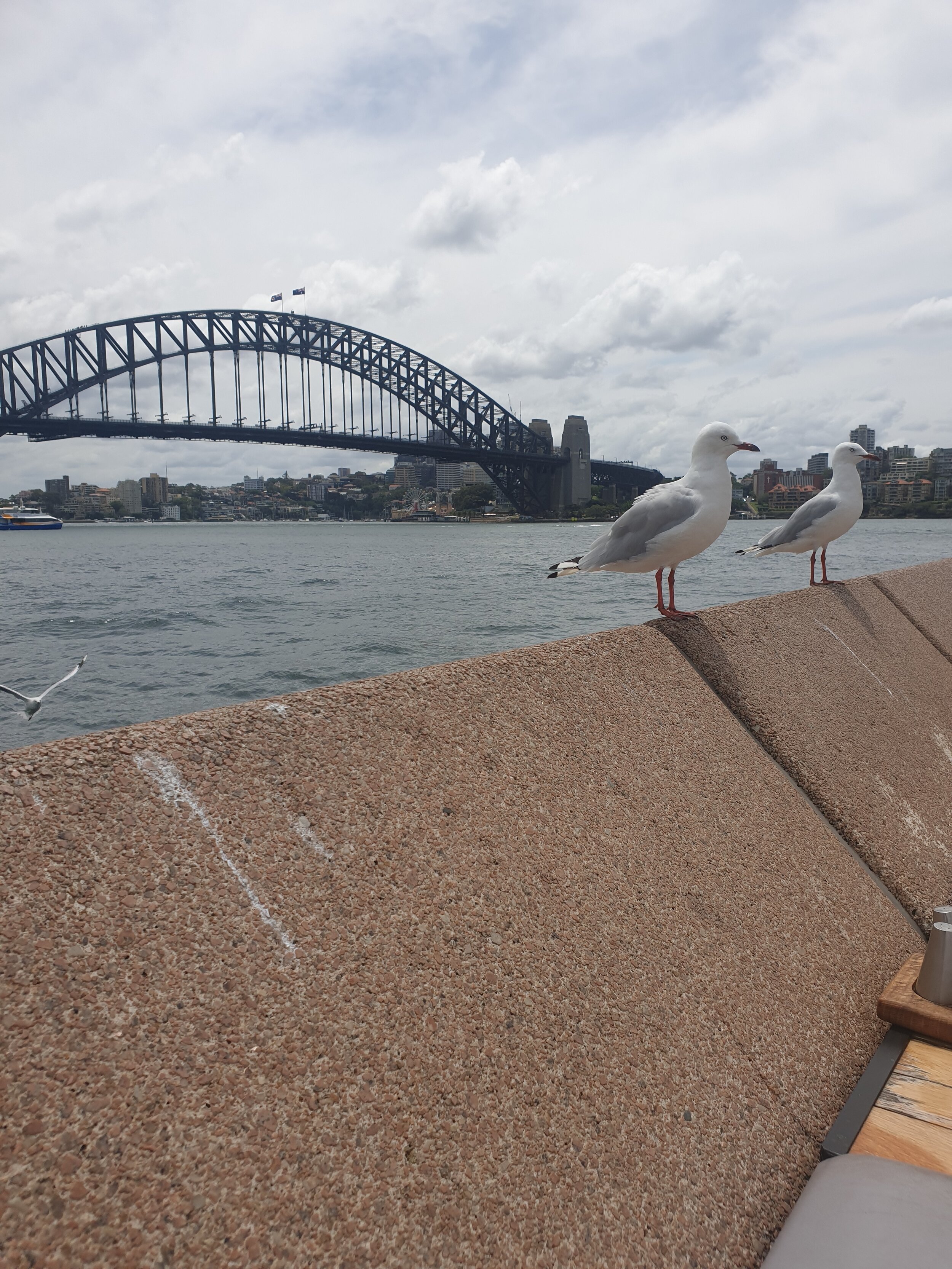Next week, it’ll be six months since I arrived in Sydney, and a lot has changed since I wrote about my first week living here. I’ve had some incredible once-in-a-lifetime experience, such as hot air ballooning, and whale- and dolphin-watching; battled a range of (some unexpected) emotions; and we’ve all had a global pandemic to contend with too!
The first few months can sometimes feel like a holiday, but often by six months, you’re likely to have a home base, know your way around a bit, and even have a favourite supermarket (hey, Coles, I love you and your seasoning aisle). Below is what I’ve learnt about living abroad so far, along with how much I love bird-watching and the optimum time to hit the supermarket for toilet roll in a pandemic.
Currency exchange
Converting to your home currency becomes second nature to you, however, you will do it less and less. While I always convert the final price of my weekly food shop to pounds in my head, just to see how it compares to my spending back home, as I go around the shop, I judge the prices more and more on their dollar worth.
The time difference isn’t all that bad
Despite only being here for six months, I’ve already gone through three different time changes: when I got here, we were 11 hours ahead of the UK, then we were 10 hours for a week or two, and now during UK summer and Oz winter, we are 9 hours apart. While the middle of the day Oz time is usually off-limits, there’s always an opportunity to talk in the evening (UK morning) and, currently, when I wake up for work, a little of the morning (UK late evening) too. I think this 9-hour set up is my favourite, as the UK waking up lines perfectly with the end of my working day, and I can chat to those back home until my bedtime if I want - while people are working from home or on furlough anyway. The current time difference also means the opportunity for communal Zoom drinks: an evening tipple for me is still a perfectly acceptable afternoon tipple for those in the UK.
It is okay to rely on people
Since I moved to uni (nearly 10 years ago…wtf), I’ve always tried to do things independently, without relying on others where possible. This came to a head when I moved home for a month just before I came here, and I ended up having a long conversation with my parents. I now, more than ever, realise it is okay to acknowledge and accept help when you need it! I’ve had so much support and encouragement from back home when I’ve opened up and asked for it in these last six months, as well as physical support right here.
During the height of lockdown, I was welcomed into the family home by my friend and her family in the Blue Mountains; at first, I was so conscious of being a burden, but as the weeks went on, I realised this wasn’t the case at all. Furthermore, going to Melbourne (once they’re out of their second lockdown and the borders re-open), I will have a friend to stay with for as long as I want; again, my initial thought was ‘I don’t want to outstay my welcome’, but I need to stop thinking like that. People (usually) don’t offer unless they mean it.
There is so much more to Sydney than its beaches…
… but they’re a stunning place to start! There are so many other stunning landscapes in and around the city too. My time in the Blue Mountains - an hour from Sydney - was breathtaking. A short meander from my friend’s house were glorious lookouts that truly reminded me I wasn’t in Kansas (okay, London) anymore. It awakened a new love and appreciation of nature. Next, the harbours and bays dotted around are absolutely gorgeous; I wax lyrical about the walk from Lavender Bay over the Sydney Harbour Bridge, but Watson’s Bay was up there for me too, where you could look back onto the city skyline over the water from one side, and then out to the seemingly endless horizon on the other side by the lighthouse. Even the city parks are lovely: Centennial Park is dotted with ponds and watery expanses. Centennial Park holds a lovely memory for me: the photo below was taken by a stranger who lent me, a total stranger she’d met 30 seconds before, her sunglasses so I could get a good photo. It made me smile and made me feel a lot less alone in this city.
The four/five-month itch is a real thing
Living, rather than just travelling, means you’ll eventually get back to the daily routine – wake up, brush your teeth, work, food shop, etc – with a sprinkle of cool new location and way of life, but without the other familiar constants that used to get you through the week, like your pals, or your favourite pub on a Friday.
I was warned by people who have made a similar move that it was totally normal and expected to feel homesick around this time. Boy, were they right - and it’s a far more intense feeling than I expected. All I could think about as I walked, ran and worked for a good couple of months was whether I would be making a huge mistake flying home now, but seriously considering doing it anyway. As well as concern for a family illness back home, I appreciate that my overall experience was also compounded by the Coronavirus pandemic and its repercussions in terms of travel, making new friends, and work opportunities and environment. I will say though, this time wasn’t all bad - it gave me a new appreciation for what I have in the UK, and taught me ways to manage these new feelings I’ve never had to deal with before.
Sometimes, you just gotta roll with it
My plans in July changed quicker than the relationships on Made In Chelsea. From a called-off Melbourne visit to an early ending of my work contract, a new freelance role to a cancelled travel tour, things I thought were a ‘given’ changed in a matter of days. I am big on planning - I always have a Plan B and strive to be prepared for anticipated outcomes - but these last few months have taught me you just gotta roll with it! You’ll (likely) be okay.
Final word
Whatever your feelings, remember they are valid and right for YOU. If you want to start making more permanent roots six months in, don’t listen to those who say “it’s too early”, GO FOR IT. If you think “I want to cut my trip a little shorter”, don’t listen to those who brag “well, I stayed the whole year”. I was reminded of this by my housemates and a couple of people back home: whether or not someone made the same flight path, lived in the same city or had the same visa as you, NO ONE has had the same experience, so don’t take on their opinions as if they have. I can definitely say, not many others have had to manage the uncertainty and newness of a pandemic while trying to manage the uncertainty and newness of a new home and life too! Everyone will have an opinion on the choices you make, but only you have to live with them.
















